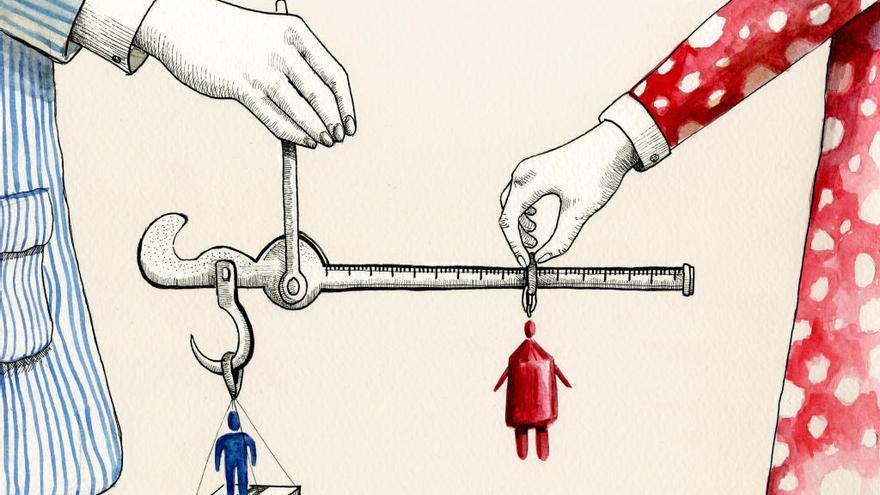10/2/2022 Week 6: Response to "Individualism vs Collectivism"
Response to "Individualism vs Collectivism"
Do you have heard the saying, "I prefer to be alone than in bad company" or "if your friends jump off a bridge, do you too"? I think that these two saying explain better what we are going to talk about in this time, Individualism and Collectivism.
Individualism and Collectivism
Individualism or individualistic-oriented society is more independent people. They like to work alone. They set and achieve their own goals. They do not like to work in groups because this makes them feel limited. They see teamwork as a hard thing to do because they do not like to depend on others.
Countries with a culture of individualism are the United States, Germany, Ireland, South Africa, and Australia.
Collectivism or group-oriented society is people that work together to support each other to achieve the same purpose. Family and communities are the centers of all. They share their ideas and together they decide what is best for the group. They are more social. They try to avoid contention to work in harmony.
Group-oriented culture countries are China, Korea, Japan, Costa Rica, and Indonesia.
Baseball team experience
Most of us know how Individualism works, but professor Ivers shared an experience that happened in the 1980s in Japan to better explain how Collectivism works.
 |
| Professor Ivers |
“This happened in the 1980s. I don't
know if anyone would be quite the same today. The 1980s were a long time ago. But
this happened in the 1980s, and I don't think that it's that different today.
There was a high school baseball team in Japan. Baseball is big in Japan. And
they won a championship. They won some sort of championship. And they were out
celebrating, and they ended up drinking.
In the end, some of the baseball players
got in this car and drove drunk. The driver was drunk. Well, they had an automobile
accident. It wasn't a bad one. It was just a little one. It was a fender bender.
Every one of those high school baseball players, even the ones who were not
driving lost his license for life.
That wasn't the end of it. Their parents
got on the local TV station and they apologized to the community. The coach of
the baseball team got on a local television station and apologized to the
community for the actions of his baseball players. And that wasn't the end of
it. The principal of the high school got on the local television station and
apologized to the community for the actions of his baseball players.”
Remember the proverb, "The nail that sticks out gets hammered down", all were hammered down. In a group-oriented society, one person's mistakes are paid for by all members of the group, in this case, the baseball players, their parents, the team's coach, and their school principal.
This experience helps us to learn a little about collectivism, and this could be difficult to understand for more of us because we live in an individualism-oriented society.
Here in Mexico and in other places that have an individualistic culture, if someone does something wrong, he or she is responsible and the person must pay for the mistake, nobody else.
As teachers or future teachers, we need to know the culture of our students and help them solve in the best way the problems they may face in their learning process. Our students are or will ve very different in culture, behavior, and needs and we need to make wise decisions to know how to teach, evaluate, and correct them.
I think we need to talk about these things at the beginning of the course with them and their families about how we will handle some situations in our class and their families can help us to work together to help them. We as teachers focus on them both individually and collectively, but without going to extremes.
The advantages of working with students with an individualistic culture are that they are creative, take initiative, and work hard to solve problems. The disadvantages are that they are perfectionists who don't mind stepping over others, they just want to be the best.
The advantage of working with students with a collectivist culture is that they are peaceful, support each other, work with the same purpose, are respectful, and aren't competitive. The disadvantages are that they are not creative, they sacrifice for the benefit of others and the whole group, and more of their ideas are not taken. Most of the time they do things that they do not like to do.
There are many positive and negative things in each, individualism and collectivism society, that we need to understand and use wisely or leave to do it, to help them to have a better relationship with others and achieve success in their lives.
- As a teacher or future teacher, how can this help you better understand the differences between Individualism and Collectivism?
2) https://www.verywellmind.com/what-are-individualistic-cultures-2795273
3) https://www.verywellmind.com/what-are-collectivistic-cultures-2794962
4) Professor Ivers Individualism vs. Collectivism https://content.byui.edu/file/5312ca2a-4f25-4d01-8386-f505b0c1dad6/3/Individualism%20vs%20Collectivism.html
5) Imagehttps://assetsnffrgf-a.akamaihd.net/assets/m/502019486/univ/art/502019486_univ_lsr_md.jpg





No comments:
Post a Comment